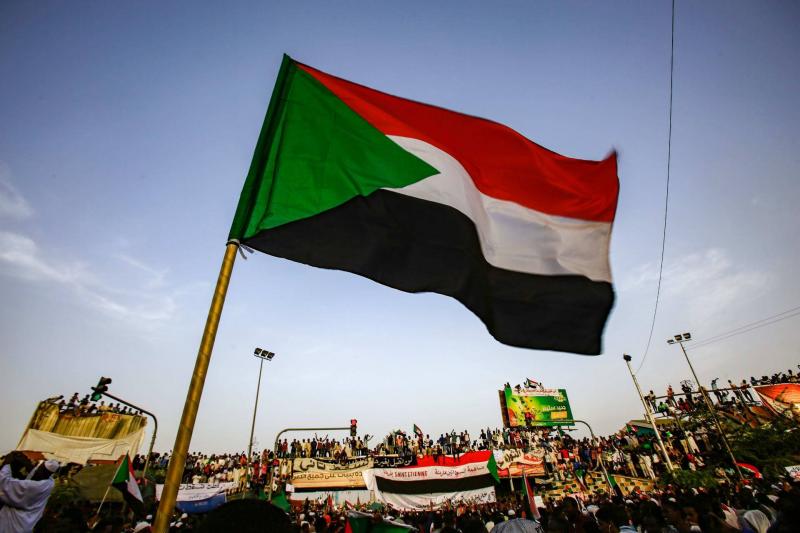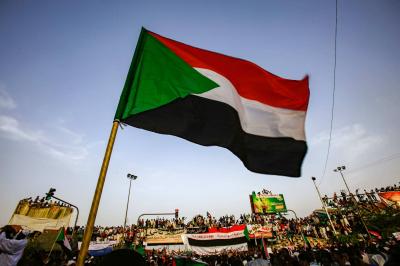With the outbreak of civil conflict in Sudan over the past two years, the Gatestone Institute for International Foreign Policy views the African nation as a primary target for the regimes in Russia, Iran, and China. The American research institute noted that as European influence in Africa has declined over recent decades, alternative foreign countries have emerged, competing to enhance their control over major African states, with Sudan at the forefront.
The fighting erupted in Khartoum on April 15, 2023, due to a disagreement between the army led by Abdel Fattah al-Burhan and the Rapid Support Forces (RSF) led by Mohamed Hamdan Dagalo, known as Hemedti, two former allies, over a politically-backed transition plan to civilian rule in Sudan. The institute reported that Sudan's rapid descent into full-scale war has proven catastrophic for its long-suffering people, with the United Nations estimating at least 15,000 people killed during the violence last year, although relief agencies believe the actual number is much higher.
In addition, over 8.6 million people have been forced to leave their homes, while 25 million are in urgent need of humanitarian aid, with Sudan achieving a record for the highest number of displaced children worldwide, according to the institute. While the conflict has caused widespread destruction in Sudan, it has also provided an opportunity for several authoritarian regimes to seek to expand their influence within the war-torn country.
The institute mentioned that prior to the war, Russia had already begun attempts to establish a foothold in Sudan through the Wagner paramilitary group, which under its former leader, Yevgeny Prigozhin, acted as the private army of Russian President Vladimir Putin. The institute explained that Wagner mercenaries primarily collaborated with the RSF, and reports indicate that Wagner supplied Sudan with large quantities of weapons and equipment, including military trucks, amphibious vehicles, and two transport helicopters.
In exchange, Russia gained access to the gold wealth in the East African nation, enabling Moscow to circumvent Western sanctions to finance its war invasion in Ukraine, according to the institute. Since the death of Prigozhin in a mysterious plane crash last year, the institute noted that Moscow has undergone a radical shift in its involvement in the Sudanese conflict, as the Kremlin now provides the Sudanese Armed Forces allied with Islamists led by Burhan with "unlimited" military support.
In return, Moscow hopes, according to the institute, that the Sudanese leader will adhere to an agreement made in 2020 that allows Russia to establish a naval base in Port Sudan, a move that would enable the Russian navy to directly threaten Western trade routes passing through the Red Sea.
Another state that has shown interest in Sudan for many years, prior to the conflict, is China. The institute clarified that it has been one of Sudan's most important investment partners, having invested approximately $6 billion in the country's energy, agriculture, and transportation sectors since 2005. China has also shown close interest in Sudan's maritime assets, such as the Port of Sudan, which it hopes will eventually become a vital element of the global trade initiative "Belt and Road."
The institute mentioned that while China has attempted to maintain a degree of neutrality in the Sudanese conflict, Russia's increasing support for Burhan and the Sudanese Armed Forces has set the stage for another hostile authoritarian regime to enter the conflict, namely Iran. The institute argues that given Iran's vital support for Russia in its wartime efforts in Ukraine, it may have been inevitable that Russian intervention in Sudan would ultimately pave the way for the deployment of Iranian military equipment in the Sudanese battlefield.
According to recent reports, the tide of war appears to be shifting in favor of the Sudanese Armed Forces, as they have begun using Iranian-made drones earlier this year. The newly acquired unmanned aerial vehicles have been used for reconnaissance and artillery spotting during the army's recent victories in Omdurman, across the Nile from the capital Khartoum. Iranian officials confirmed that the Sudanese Armed Forces have started using drones in their fight against the RSF. The arrival of Iranian drones in Sudan followed a visit by Ali Sadek, the acting Sudanese foreign minister, last year, during which he met with senior Iranian security officials.
According to the institute, the Iranian regime has a long history of cooperation with Khartoum, as the Islamic Revolutionary Guard Corps has routinely used Sudan as a base for shipping weapons to its affiliated organizations such as Hamas and Hezbollah during the rule of former Sudanese President Omar al-Bashir. The institute believes that the deployment of Iranian drones in Sudan, alongside Russia's increasing involvement in the Sudanese conflict, is certainly a cause for concern for Western policymakers considering the country's geographic significance in the Red Sea.




